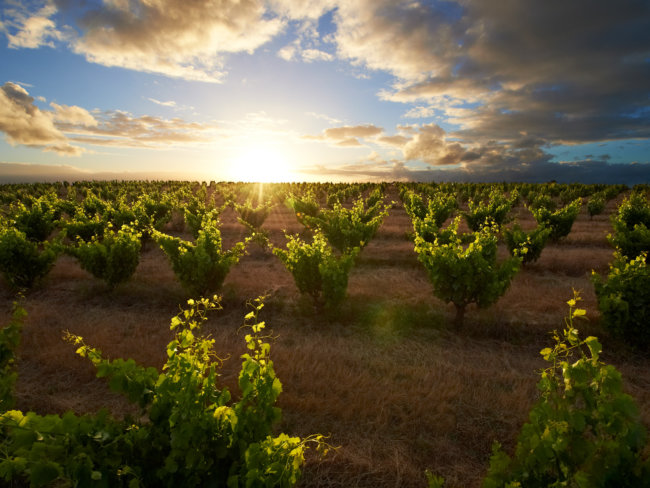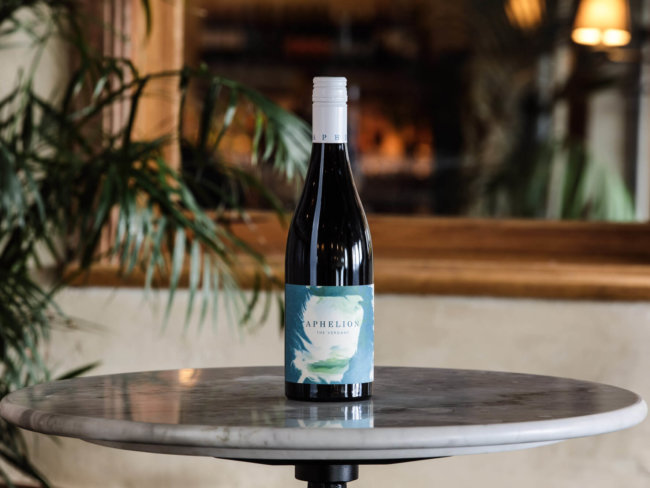While gearing up for the 2020 edition of the Young Gun of Wine Awards, a moment of reflection uncovers a bit of a quirk over the years. South Australia has contributed more Young Gun winners than all the other states combined, and by a margin. There’s no question that South Australia has quality regions aplenty, from the cool of Basket Range in the Adelaide Hills to the more traditional stomping grounds of McLaren Vale and the Barossa, but what exactly is it that makes South Australia such a hotspot for young talent?
Let’s start with the stats. More than two-thirds of Young Gun of Wine winners across the history of the awards hail from South Australia. To put it another way: nine of the 13 titles handed out have ended up in SA. And to date, around one-third of all winemakers picked as YGOW finalists make their wines in what is aptly named the Wine State.
Past winners include characters like Pete Schell (Spinifex Wine, Barossa Valley), Taras Ochota (Ochota Barrels, Adelaide Hills), Abel Gibson (Ruggabellus, Barossa Valley) and Fraser McKinley (Sami-Odi, Barossa Valley).
Because numbers and names like these deserve closer scrutiny, we asked winemakers, and thinkers in the trade, a single question: What is it about SA that encourages the accolades, and indeed the level of creativity on display?
Wine critic Nick Stock understands Australian wine, and he knows the YGOW awards close up, in his role as Chief Judge.
“I think South Australia has a unique quality in that it is big enough and small enough to support innovation,” he says. “It has always been a crucible of creativity and community and Australia’s ‘new wine movement’ really crystallised early on in South Australia.”
There’s a sense of opportunity in the state. “Young and new winemakers can find a happy home in South Australia, with accessibility to grapes and the opportunity to work from little corners of another winemaker’s shed,” says Fraser McKinley, the YGOW in 2014. Originally from New Zealand, he came to the Barossa 16 years ago to work vintage, then apprentice, and eventually embraced the whole lifestyle, launching Sami-Odi in 2007.
“That’s the superb part about South Australia for young people. If you want to make wine here, you can. There’s very little to hold you back other than yourself.”
![]()
Damon Koerner, Nick Stock and Jono Koerner at the 2019 YGOW Awards.
Alex Head (Head Wines, Barossa Valley) – a three-time YGOW finalist and the People’s Choice winner from 2013 – recognises the double impact of access and economics. “SA is a place that can attract a lot of young talent. It has the quality grower base that allows entry to the market without massive capital outlay. If you are young and want to start your own wine business, then SA is the place to start.”
That prime fruit is so available, and that awards stats cluster in SA’s favour, is a simple matter of numbers – at least in part.
South Australia produces the most wine grapes in the country, with 49% of the total crush for the 2018 harvest (879,000 tonnes).
In the same year, SA overtook Victoria as home to the most wine producers in Australia (around 30% of the total). Until then, Victoria had maintained the highest producer numbers for nearly 30 years straight, despite turning out only about 5% of the nationwide crush.
“It is a bit of a numbers game in a way,” says Charlotte Hardy (Charlotte Dalton Wines, Adelaide Hills), another NZ ex-pat, who arrived in SA after vintages in Hawkes Bay, Bordeaux and the Napa Valley. She was a YGOW finalist in 2017.
“But also, South Australia is made up of more than 15 growing regions, with four of them very close to Adelaide. All of these regions have different climates, altitudes and unique soil structures which results in many different varieties [being grown]. We are really spoiled for choice over here.”
Then there’s the deep culture of winemaking in the state. “We have the benefit of an old industry,” observes Hardy. “Penfolds and Orlando were established in the 1840s. All of the oldest, largest companies began by experimenting; they were the cool avant-garde of their day – it’s in the DNA of South Australia.”
![]()
Charlotte Hardy of Charlotte Dalton Wines.
Patrick Madden from Adelaide wine bar Mother Vine agrees. “South Australia has a long history with winemaking and grape growing. There is such a strong culture here in SA in the wine industry. More and more of the younger generation are interested in wine.”
YGOW shines a light on emerging winemakers. Winners are judged on the quality of their chosen wines, as well as broader picture stuff: creativity and leadership are amongst the other elements at play.
These qualities dovetail with the values of local upcoming winemakers, says 2018 YGOW Rob Mack (Aphelion Wines, McLaren Vale).
“A generation of winemakers are now coming through that combine solid technical experience and take it in new and often untested directions. It’s this combination of technical winemaking knowledge and a thirst for experimentation that has allowed SA winemakers to do so well at the awards since its inception.”
Another thing is community, which has an esteemed place in the SA wine scene says Damon Koerner (Koerner Wine, Clare Valley). Brothers Damon and Jono shared 2019’s YGOW honours. “The industry is fairly tight-knit and whilst we are all a bit competitive, I think at the end of the day everyone wants the best for the industry as a whole, so we generally work together and throw ideas around. This encourages more creative thinking and leads to a high quality of wine produced across the board.”
![]()
Colin McBryde, of Adelina Estate, the 2009 Young Gun of Wine.
That said, creativity is always best represented as a function of the whole, as Col McBryde (Adelina Wines, Clare Valley) points out. He was the YGOW in 2009.
“SA producers have taken the gong more often than not, but that really plays second fiddle in my mind to the group of finalists each year and how they mark their stamp with a regional and/or varietal impetus. It’s the group as a whole that stands proud and raises awareness for younger winemakers.”
What rises to the top, right across the discussion, is genuine curiosity as opposed to parochialism. Vital signs of wellbeing for the industry, and for the awards themselves.
Late entries for the 2020 Awards are open until December 31 (2019).








